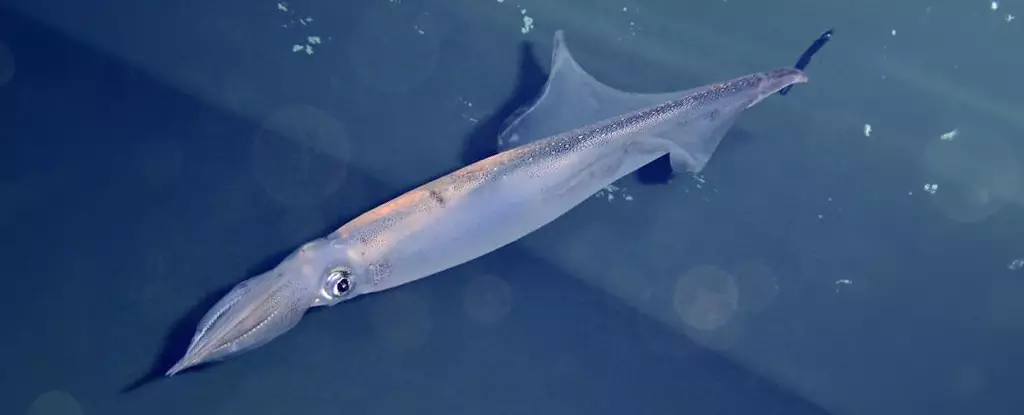Scientists have long debated the validity of horoscopes and astrological predictions, especially when it comes to determining one’s personality or future. However, a recent study conducted by marine biologists from the University of Tokyo has shed light on the connection between birthdate and mating behavior in Japanese spear squid (Heterololigo bleekeri). The research has revealed that the month in which these squid hatch can significantly impact their reproductive tactics, leading to variations in size and mating strategies among male squid.
According to the study, male Japanese spear squid that hatch early in the breeding season, between April and July, tend to grow larger by the time of mating and become consorts. These consorts engage in direct competition with rivals to impregnate females and guard them during egg laying. On the other hand, squid hatched later in the season, between June and August, are smaller in size and adopt a sneaky mating strategy as sneakers. Sneaker males deposit their sperm covertly near a female’s eggs in the hopes of fertilizing them. Interestingly, squid hatched in early July exhibit a mix of both consort and sneaker traits, highlighting the influence of relative age on mating behavior.
The phenomenon observed in the Japanese spear squid aligns with the concept known as the “birthdate hypothesis,” which suggests that individuals born earlier in a given period have advantages in certain aspects of life. While this hypothesis has been studied in teleost fish and humans, the research on squid provides the first evidence of this phenomenon in aquatic invertebrates. The study’s findings indicate that male H. bleekeri are inherently predisposed to specific mating behaviors based on their hatching date.
The researchers also noted that environmental conditions play a crucial role in shaping the mating behaviors of squid. Factors such as food availability, water temperature, and extreme events like marine heatwaves can influence the growth trajectory and reproductive strategies of male squid. Despite growing up in different seasons, consorts and sneakers showed similar growth rates early in life, raising questions about the extent of environmental impact on mating behaviors. Further studies are needed to unravel the complex interactions between birthdate, environmental factors, and mating tactics in squid populations.
The discovery of birthdate-dependent mating behaviors in Japanese spear squid has significant implications for evolutionary biology and animal behavior research. By demonstrating how genetic, physical, and environmental factors interact to shape reproductive strategies in marine organisms, this study highlights the complexity of mating systems in natural populations. The findings suggest that male squid exhibit a range of mating tactics that are influenced by a combination of intrinsic and extrinsic factors present from birth.
Overall, the research on birthdate and mating behavior in Japanese spear squid provides valuable insights into the intricate mechanisms governing reproductive strategies in marine species. By uncovering the connection between hatching date and mating tactics, scientists can gain a deeper understanding of the evolutionary drivers shaping animal behavior in diverse ecological contexts.

Leave a Reply